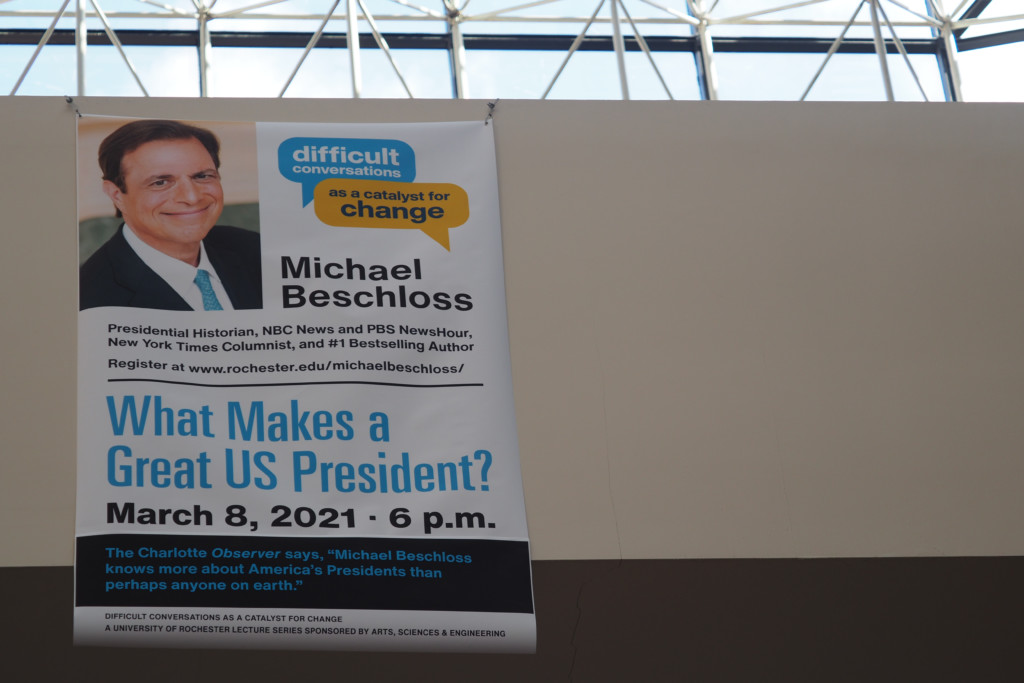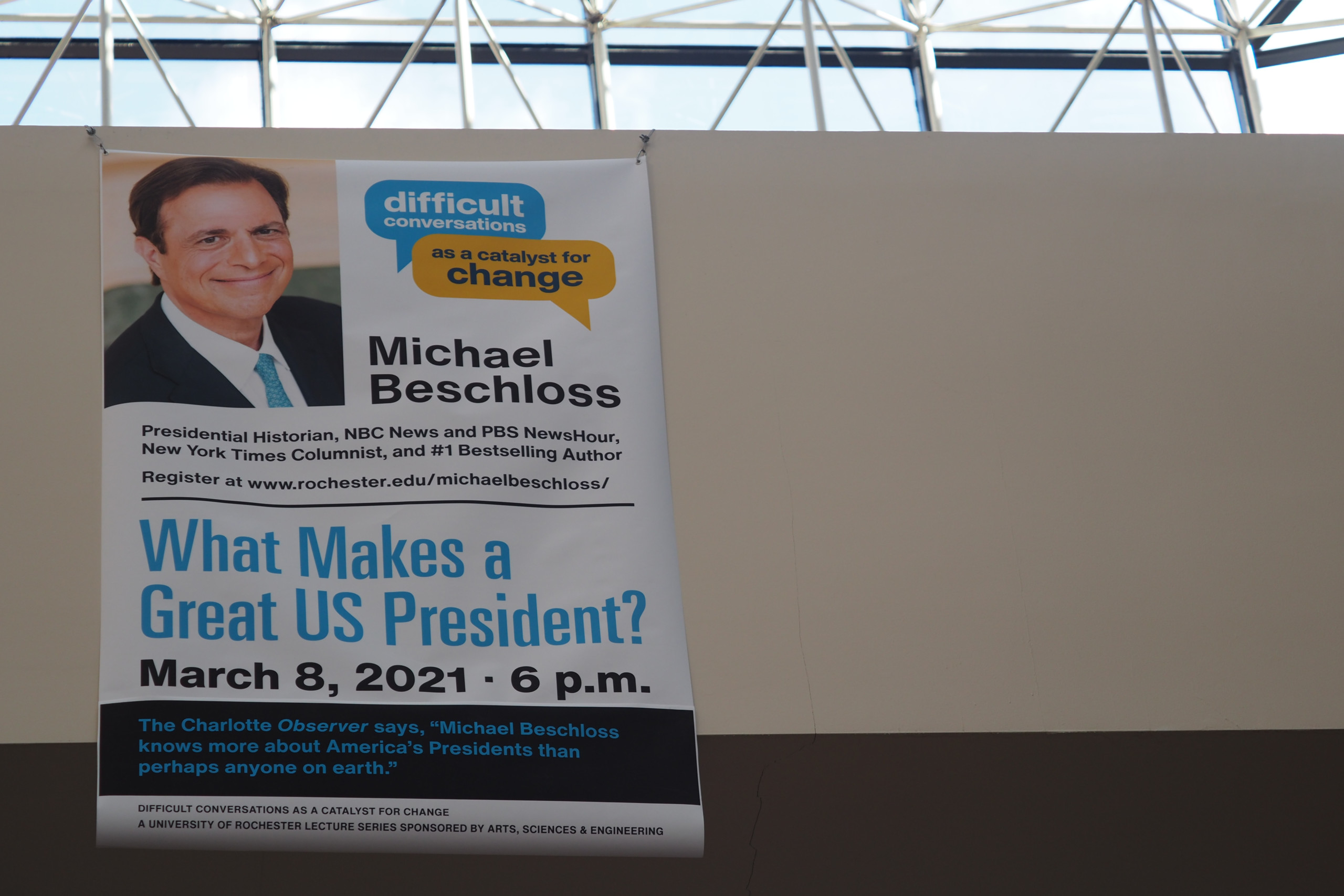While eating lunch with Richard Nixon at his home in 1992, historian and author Michael Beschloss asked what Nixon would say to those who criticized his use of presidential power.
Nixon’s response “didn’t mention [UR] but I guarantee he remembered the University of Rochester very well,” Beschloss said in his talk last Monday on what makes a great president.
He added that the University had a “turbulent history” during Vietnam, and “a proud history of great objections to an immoral war.” Beschloss was also quick to admire the students at UR, saying “dissent is just as patriotic as supporting a president, if not more so.”
Beschloss told the story about his lunch with Nixon in response to the question, “which president had the best sense of humor?”
His knowledge of the presidency is immense, and he used his vault of presidential information to discuss the qualities of a “great president,” as well as what makes a worrying one.
The political guts of George Washington, the ability to explain tough decisions like Abraham Lincoln, a sense of history like Harry Truman, and the ability to reach across the aisle like the founders and Lyndon B. Johnson make up the four most important qualities of a “great president” according to Beschloss.
Shortly after the Revolutionary war, Washington made waves for sending John Jay to London to make a peace treaty with the English in return for American concessions To Beschloss, the courage to take a career hit to keep the United States safe and independent made Washington great — in that moment; Beschloss later pointed out Washington was a slave owner.
To Beschloss, Determining a good president means to look at the big picture, weighing the good and bad of a president’s actions. Some cases seem clear, like Woodrow Wilson, who ignored a pandemic for political points.
“Was Woodrow Wilson a great president?” Beschloss said. “He did a couple good things […] Do those outweigh the fact that he killed 675,000 Americans that didn’t need to die? No. Does that remind you of anything in the last year?”
This was not courageous, said Beschloss, and overwrote any other good that history might have remembered him for.
Beschloss also discussed the process of judging a president, explaining that hindsight is where history is written. He cited Truman as an example of a president whose image changed over time. Truman was famous for his quote on the importance of knowledge in a leader: “Not all readers are leaders, but all leaders are readers.”
But not all presidents have been readers, according to Beschloss. Throughout his talk and the Q&A portion of the event, he spoke about Donald Trump, reminding viewers that democracy is fragile.
“Maintenance of democracy requires eternal vigilance,” he said.
He elaborated on how presidents have more power than could have ever been imagined by our founders, who expected presidents to go to Congress with their ideas, not to use executive orders.
As the presidency continued to gain more powers unimaginable to the founding fathers — such as nuclear weapons — the position has become more dangerous, thus requiring closer vigilance. Beschloss walked the crowd through an alternate reality where Trump used his access to those powers to stay in power indefinitely. Beschloss touched on January 6, where he said Trump stroked violence in the capital and around the nation.
Although the United States didn’t have our vice president hung on the Capitol steps or a hostage situation with the Speaker of the House, Beschloss made sure to emphasize, it can happen here.


